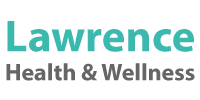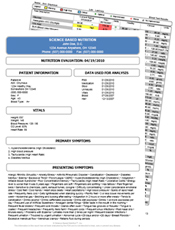Most people have experienced some sort of heartburn in their life. It can happen from the occasional overindulgence of pizza or spicy foods. However, heartburn that occurs frequently is called GERD, or gastroesophageal reflux disease. GERD occurs when contents of the stomach are pushed upward and past the barrier between the stomach and the esophagus (the lower esophageal sphincter or LES). Stomach juices consist of acids that break down proteins and enzymes that break down protein, fats, and carbohydrates. The reason this is such a problem is the esophagus is not designed for digestion and thus irritates the lining of the esophagus which is often described as a burning sensation in the chest.
There is a prevailing philosophy that if you suffer from GERD your stomach produces too much acid. The problem with acid reducing medications, of course, is that the stomach is supposed to be acidic! Acid in the stomach is needed to break down protein. If the protein is not completely broken down and gets into the blood stream, your body can develop an allergy against that protein. This can cause both food allergies and autoimmune disease.
Yet, here is the bigger problem…symptoms of GERD can be extremely irritating to the esophagus lining. GERD that persists for an extended period of time can cause changes in the esophageal lining which can lead to a pre-cancerous condition called Barrett’s esophagus.
Rates of esophageal cancer are increasing in industrialized nations at a rate faster than any other cancer. This is primarily because many follow the Standard American Diet (SAD), have stressful lifestyles, and lack physical activity.
Because many do not know what is causing their GERD or they want the quick fix, they turn to drugs for help in reducing their symptoms.
Drugs used for GERD fall into several categories; H2 receptor antagonists (Tagament, Zantac), proton pump inhibitors (Prilosec, Prevacid), and antacids (Tums and baking soda). All of these drugs decrease the acidity of your stomach. The problem with H2 receptor agonists (Tagament, Zantac) is that while these relieve symptoms, they may do nothing to stop the reflux. Proton pump inhibitors (Prilosec, Prevacid) do however actually stop the production of acid in your stomach. Then, nature takes over and in response to the low-acid environment created by the drug, the stomach secretes large amounts of the hormone gastrin (a hormone that stimulates the proton pumps to create acid). This is another formula for digestive tract cancers, because high levels of gastrin are associated with esophageal, pancreatic, and stomach cancer.
All this being said there are times when the aforementioned pharmaceuticals may be appropriate to treat GERD. Discuss this with your doctor. Get the crisis under control, then start working to get your body healthier and hopefully reduce medications as they are no longer needed.
Nutrition and Lifestyle Tips to Help Relieve the Symptoms of GERD
- Do not lie down within three hours of eating. Being vertical allows gravity to help your stomach contents to stay where they belong.
- Avoid items that cause the LES to relax:
- Peppermint
- Chocolate
- Soda
- Coffee
- Tea (herbal teas are OK)
- Smoking
- Alcohol
- Bad fats especially fried foods. Instead eat cold pressed organic olive, flaxseed, coconut, palm and sesame oils, organic butter, avocados, fresh nuts, and fatty fish. At high temperature cooking coconut and palm oil are best.
- Aspirin, Ibuprofen, Aleve, Motrin, and other pain pills destroy the lining of your stomach and esophagus. Use these only when absolutely necessary. If you are having chronic pain or headaches, try to determine the “cause” of the pain so you won’t have to rely on these medications.
- Work to rebuild the lining of the esophagus and stomach. One of the best natural products is licorice extract. The extract is more effective than plain licorice because in the amounts needed to experience positive changes there is a substance called glycyrrhizinic acid that may increase blood pressure. This substance is removed in the extract. The extract is called “DGL” (deglycyrrhizinated licorice). Most people experience significant relief within a few days. Take 700-800mg 2-3 times per day between meals. Other useful products to aide in a healthy digestive tract are:
- Seacure: 2 pills, 3 times per day taken with food.
- S. Boulardii by Garden of Life: 600 mg Saccharomyces boulardii (10 billion CFU), 2 times per day taken with food.
- Biodophilus by Douglas Laboratories 2 pills taken with food.
- Lauricidin 1 scoop, 3 times per day taken with food.
- EPA/DHA 500-1000mg per day with food.
- Chiropractic and GERD. What does Chiropractic have to do with GERD? Chiropractic is a very effective means of treating a hiatal hernia which is a frequently overlooked cause of GERD. A hiatal hernia is when the top part of your stomach pushes up through your diaphragm. A chiropractor can use soft tissue manipulation to reduce hiatal hernias which can fix this quite efficiently.
Another way chiropractic can help is through spinal manipulation. Many who suffer from GERD and/or stomach ulcers develop pain between the shoulder blades. This is because the nerve supply is the same to both areas. Chiropractic adjustments to the upper back can “reconnect” the nerve supply to the esophagus and stomach and make healing more efficient. - Lose weight if you’re overweight. The extra weight puts pressure on your stomach contents and can actually “push” the contents back up into the esophagus.
- Eat lots of fresh fruits and veggies. These foods contain the vitamins and minerals needed for digestive health. The fiber and minerals also act as an acid buffer.
- Guard your stress levels. Stress plays a significant role in the state of your digestive health. Learn to control your stress by practicing stress reduction daily. This can be in the form of prayer, exercise or whatever you enjoy and can commit to on a daily basis.
GERD can pose serious risks to your health over time. Don’t ignore what you’re body is trying to tell you! It is often a symptom of a much greater problem involving diet, lifestyle, stress and the digestive tract as a whole. Do something today to be healthier than you were yesterday. Start by setting up a nutritional consultation to get professional guidance on improving your lifestyle habits.

